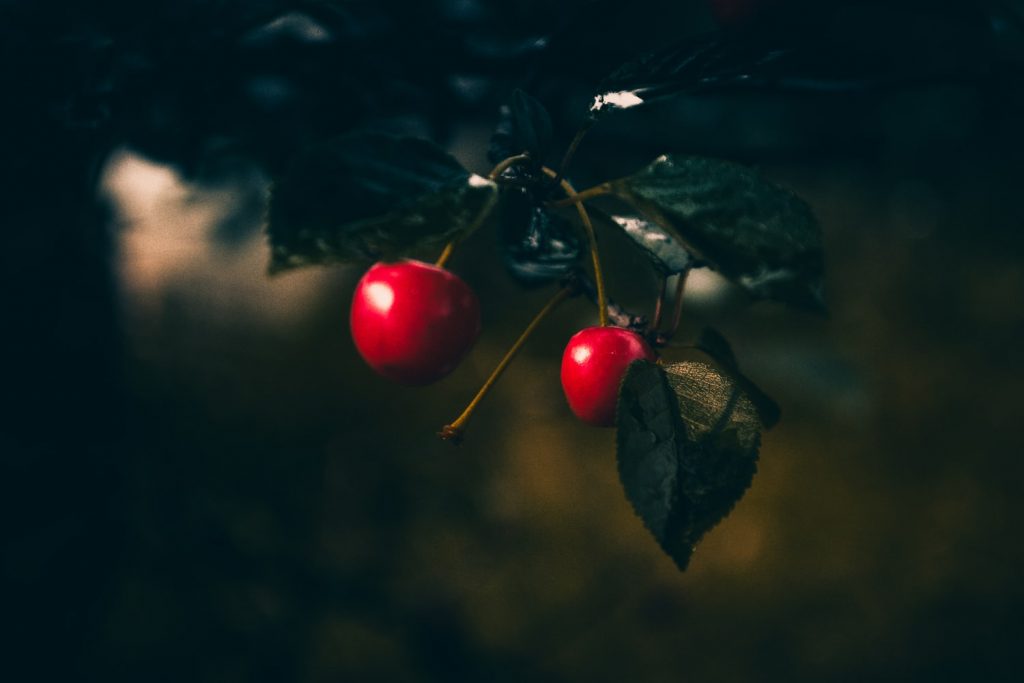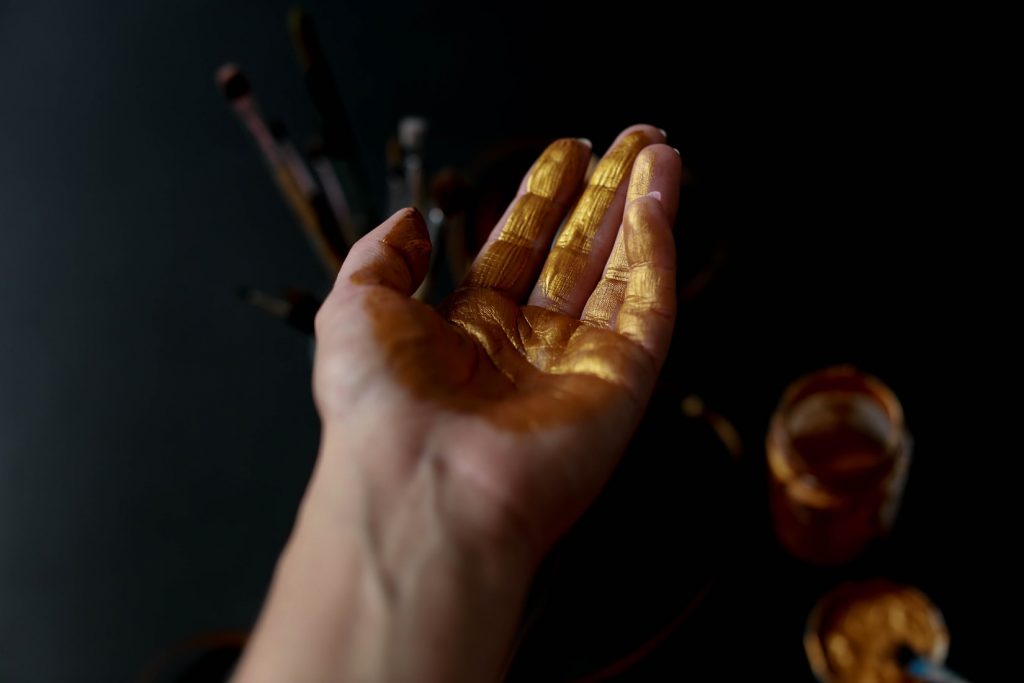Silver pulls the eyepatch away from her left eye. Her fingers press the skin around the metal protrusions, unable to rub in case her skin should pull away from the edges. She closes her one eye, stretches and feels the slight grind in her shoulders. Metal plates and screws pop over each other. She returns to the screen. Silver aligns her aug-eye’s interface over the display’s and selects ‘upload.’
Feeling behind her ear, Silver slides the memory card out of its slot. The patch of synthetic skin hangs loose, and she imagines she can feel the cool air touching a circuit. All phantom feeling, but she shivers anyway. The frame of the screen has a glowing port that she presses the card into. It zips closed, the download of data starts ticking over at the bottom of the screen. She cracks the plastic seal of a new memory card, and slots it in, pressing the synthetic skin back into place. There is a faint buzz and hiss, as the internal vacuum seals the opening.
A blue icon flashes at the edge of the screen. Silver taps the glass table top, and it opens. Mei’s avatar smiles from the corner of the message box.
Mei: You heading home yet or what?
Silver smiles, without parting her lips. Her fingers draw a circle on the table top, and a keyboard illuminates. Silver types.
Silver: Changing over memory cards, just waiting for the download to finish.
Mei replies with a thumbs up.
A second blue icon flashes. Silver frowns, tapping it open.
Rosalie: Has sent you a parcel.
Rosalie: Wish you were here…
Silver aligns her internal interface.
>Open parcel
>Data received
>Image file received.
>View now? Y/N
The image unfolds, spreading across her screen. Silver feels the lower edge of her eye quiver. The city sprawls behind Rosalie, hugging the base of the mountain. She is standing with her back to the camera, but her head is turned, the sunlight catching red hair and haloing her face. The tear falls hot and quick, and Silver’s hand darts out to catch it.
*
The phone vibrates on the table. The sound interrupts snores from under the blanket. Silver’s arm reaches for it. Long fingers catch an edge, spinning the phone away. She caterpillars to the edge of the bed, picking up the phone. It’s buzzing stops.
‘Hello?’ she says. Her aug-eye boots.
>Interface activating
>Date: 2567.05.07
>Time: 08:37
>Ready for input
She feels the buzzing through the base of her skull.
‘No, I’m in bed still, it’s my day off remember?’ Her sandpaper voice bounces off the walls. She sits up, swinging heavy legs over the edge of the bed. The blanket slides away, half onto the floor. She doesn’t pick it up.
‘What do you need me to come in for?’ Her fingers trace figure eights around her eyes, sweeping the sleepiness away. She presses her feet into the carpet. The blinds begin to rise as her augmented interface systems boot up. The sunlight creeps up the wall slowly. Silver mutters into the phone. She goes to the alcove that serves as a kitchenette. The coffee machine sputters.
‘Sorry, say that again… Couldn’t hear you…’ The coffee mug trembles in her hand.
>Biometric warning: Breathing – Erratic. Pulse – Increasing. Blood Pressure – Falling.
‘Do you know—’ she pauses, waiting for the voice on the other end to finish. ‘Yes, of course, I’ll come in straight away.’
>Biometric systems: Increase fluid intake. Regulate breathing. Sit down.
Silver’s hand still trembles as the coffee drips into the mug. She focuses on the rhythm of her breath: inhale, exhale, repeat. The coffee burns her tongue, and the feeling of lightness behind her eyes begins to fade slowly.
Standing outside the precinct, Silver watches the passing traffic. Her aug-eye boxes and tracks the cacophony of movement. Her other eye is bloodshot. Silver slides up the optic cover and wipes the moisture away with an unsteady hand. The cover hides her tears from the other agents inside. She is glad of that. She slides the cover down. The ache in her stomach won’t let up. Her hands tremble, so she pushes them into her pockets. A dark car rolls to a stop.
The last time she had seen Rosalie, outside the hospice, they had fought Rosalie ripped a branch off a Japanese Maple and lunged wildly at Sliver. Stabbing for her face, neck, eyes. She had screamed to turn it off the whole time. The nurses pulled Rosalie away with sad nods. They saw this all the time. They left Silver standing in the garden until a dark car had driven her away. The branch of the Japanese Maple remained cast aside on the manicured lawn.
Silver is drawn back to the present as the car door swings open. Silver realizes it is now dark blue, not the black one she remembered.
‘Sil, is it true?’ Donna’s impeccably coiffed hair, chemically set into a wave, has a distinctly greyer tint than the last time Silver had seen it. Donna’s arms wrap around Silver’s shoulders. At the touch, Silver suddenly feels cold, but her biometrics remain stable.
‘They wouldn’t let me see her…’ She says. Silver’s eye fills with tears, seeping under the edge of the cover. Donna squeezes her shoulders and they walk inside.
The room is clean, but the walls were the sort of beige that reminds Silver of stained sheets. Donna sits next to her; a tissue box placed in front of her. Silver plucks one out and holds it under her eye.
‘She hasn’t called home for weeks,’ says Donna, speaking to some other unseen entity.
‘When was the last time you saw her?’ Silver asks.
‘Around June,’ says Donna. Silver waits for her to continue. ‘She came home for a while; continued her treatment remotely. She struggled. We struggled. She asked us not to visit anymore when she went back in.’ Her voice wavers.
‘She sent me a photo,’ says Silver, ‘yesterday. She was standing on a lookout.’
‘That must have been from when she came home. We tried to take her out, get her to see beauty again.’
Silver examines the table top in minute detail.
>Composition: Wood veneer. Polychip filler. Recycled metal frame.
>Structural integrity: 98%
>Projected product lifespan: 150 years
The swirls in the veneer are suddenly shadowed.
‘I’m sorry for your loss.’ Silver looks up at her boss. He is looking back at her, his aug-eye shifting in spirals. He sits in front of Donna, and starts to deliver the speech Silver had heard so many times before, but never from this side of the table. She doesn’t realise she is shaking until Donna touches her hand as they stand to leave. Her boss says, ‘I’ve approved your leave Sil, take some time to process this.’ She mouths words. A waved hand silences her protest.
She mouths words. A waved hand silences her protest.
Outside the precinct, Donna and Silver stand together, waiting for Donna’s car to return.
‘We knew she would die. We expected a call from the hospice. Not this, never like this…’ Says Donna. Silver’s aug-eye boxes and traces the paths of the traffic. It keeps her mind busy, distracted. Donna keeps talking about Rosalie. The disease had eaten away at her body. Leaving her hollow. Her organs were removed bit by bit, replaced by wheezing machines, augmented substitutes, or not at all. Donna sighed, and Silver could feel the aching relief seeping out of her.
‘I’m still going to miss her,’ says Silver.
‘Of course,’ says Donna, ‘call anytime.’ Silver knew she wouldn’t.
*
The quilted foam of the Sync bed is velvety under Silver’s exposed shoulders. The visor slides down over her face. Her aug-eye syncs up, the optic cover projects scrolling text.
>Archive File Retrieval Commencing
>3…
>2…
>1…
There is a shimmer as the visor becomes opaque. Silver lets the screen blur in and out of focus. A wave of nausea passes over, as the images whirl, mixing her own internal interface with the memory bank construct. Vertigo passes as the image stabilises, adjusting to her focus range and muscle triggers.
Her eye watches the visor’s projections of the building’s mainframe through the patch. Her aug-eye follows the paths that light up across the screen. The data-streams of the different departments, all flashing in a disharmonious pattern. She focuses on the archives. Maybe I shouldn’t do this. But her mind is already queuing up the commands through her interface.
>Case File Search: Rosalie Flanagan
>Result: 1 File Found
>Unpacking File…
The report streams out, and Silver feels the bile rise in her throat. The images sear themselves in her brain. The crumpled dress around the withered body. A bare-branched sapling tossed amongst the wind. Chipped dollar-store nail polish, pale fingers, lying curled on the dark road. Silver shivers, and feels the velvet ribs of the bed press against her skin. Her biometrics trigger again.
The visual recording of the investigating agent fasts forwards at a flickering pace. It flashes through the day. Silver lets it run while she reads the coroner’s report.
Cause of death: Asphyxiation
Time of death: 01:35 am
Notes: Victim was pedestrian. Brain chemistry suggests unstable mental state.
The video stream shivers and she is watching the road through a windshield. It skips past the sprawl, through the suburbs, into a driveway, a house. Silver watches the flickering lights of home, children, wife. It keeps all of it, every recording, every minute… The thought runs through her head, repeating. Since the install, since logging the cards…
Her mind is wandering, under watchful sensors, and she finds her own files scrolling across the visor. I shouldn’t. But she lets her mind reach. The data file opens, softly, like petals to the sun. Her rookie days. She was leaving work early. The video skips through and then there she is. Rosalie. Sun-kissed and carrying the rabbit bag she loved. Silver had called it childish, but the nurses had encouraged Rosalie to keep it. We were going to the movies, she thinks, recalling the feeling of Rosalie’s hand pulling her along. They had been happy that day.
Silver felt the edges of the memory caving in, could feel the archive recording, absorbing her feedback. A message rolls across the screen,
>Time to jack out.
She folds the soft edges back in, packing the happy face of Rosalie like an origami crane. Silver tags the memory, filing it away in the archive. She begins to withdraw, mentally pulling away. The archive fades out across the visor. She surfaces, taking a deep breath, the recirculated air tastes metallic at the back of her throat.
‘That was a serious dive, Sil,’ says Mei.
Silver slides the visor away from her face. She ignores Mei standing over the bed and goes to the coffee machine. ‘Keep going like that and you’ll begin to corrupt your memory files, you know?’ Mei’s voice echoes around the archive room. Silver focuses on the dark stream of coffee dribbling into the cup.
‘Mei, has anyone ever deleted their own files?’
‘Sure, sometimes. But you can only delete the parts that aren’t relevant to cases, so they have to be screened before deletion, get all the approvals, you know.’ Mei leans against the edge of the sync bed, arms crossed, while Silver nods her head.
‘Do the file deletions affect the brain — you know, the sync?’
‘Yeah, so we’ve heard, it’s not supposed to.’
‘But…’
‘But people delete files, then in about a month – gone. Completely un-retrievable.’
‘Completely?’
‘Yeah, we tested a group of agents. Zero memory bleeds after deletion. And no memories for them to corrupt.’
Silver picks up the coffee and sips. The steam warms her face, and she can feel the place where her cheek is damp. She wipes away the tear, smearing the sheen across her cheek.
Mei sighs, ‘If you changed both eyes, you wouldn’t have this problem.’
*
The city sprawls around the base of the mountain. Silver stands, leaning against the railing of the lookout. The sun has dipped below the horizon, and the light haze of the city is growing. A network of nodes, flashing lights, towers, and hubs. Silver’s eye adjusts to the light differential in increments. She feels the cool metal of the railing through her shirt. Here in the quiet stillness, she can feel the miniscule vibrations of her aug-eye. She traces a finger along the ridges of metal framework, all plugged in under the skin. She stares into the valley below. The wind that slides down the mountainside rustles the treetops. The optic processor in her aug-eye works overtime.
I can delete it all. I can forget. If I delete, delete… Rosalie.
>Opening data file…
The ellipses flash in sequence. Opening, unpacking, synthesising. Silver waits, her legs swinging back and forth.
>Files ready for review
A message pops up; Silver had to remain linked to the agency network to access the memory files.
Mei: You can just skim through them you know, then authorise the deletion.
Silver: Thanks, I’ll think about it.
Mei: No one would think badly of you, heaps of people do it, you know…
Silver: I’ll let you know.
Mei: No problem, talk later.
>Open files Y/N?
Silver slides down her optic cover, fixing it over her organic eye. The data begins to unpack, lining up in sequence. She picks one in the middle.
She is staring at Rosalie. The memory’s sense-net begins to overlay and dampen her physical senses. The cold air from the open window raises goosebumps on her skin. Rosalie’s eyes are bloodshot, and there is a dribble of clear mucus under her nose.
‘I hate it!’ she says, ‘why did they do that to you?’ she is running her hands up into her hair. The rise of her jumper exposing the pale belt of skin under the navel. ‘I can’t be here! Not with… that!’
Silver’s own voice cuts through, ‘I had to get the augmentation to move into the force, it wasn’t exactly negotiable!’
Hacking sobs follow. Silver remembers the anger, the heat in her chest. The sense-net enflames her cheeks.
‘I don’t want that!’ Her voice choked around the hacking sobs rising from her chest. She paced, gnawing at her fingertips. ‘What is that? I don’t know if it’s even you anymore!’
‘Of course, it’s me,’ says Silver, the feeling of her stomach falling away bled into her voice.
‘But who else is in there, Sil?’
Rosalie walked across the room. Her hands grabbed Silver’s face. Rosalie put her face close, eyes darting back and forth. Frantic. Searching. Silver slipped a hand up and slid up the optic cover.
‘It’s still me, Rose,’ she said, softly.
‘No, that’s not what I meant…’ More sniffs.
Silver feels the tear. Is that mine or the sense-net? She stops the playback. The overlay of senses lessens, but the tear still rolls down.
She remembers how that argument ended.
They had lain together, for hours, curled close. Silver shut down the aug-eye interface and Rosalie traced figure eights around her eyes. Rosalie had learnt not to press too hard. Skin split from the protrusions bled for days.
Silver felt the tingle in her cheeks as the memory faded out of her vision. It would take all of it. She thinks. It would take all of her part of me away. Her lips are dry, and she licks them, feeling the numbness in her gums, the tightness in her throat. She wonders if Mei is still monitoring her.
Download a PDF of ‘>Delete File: Y/N?’



